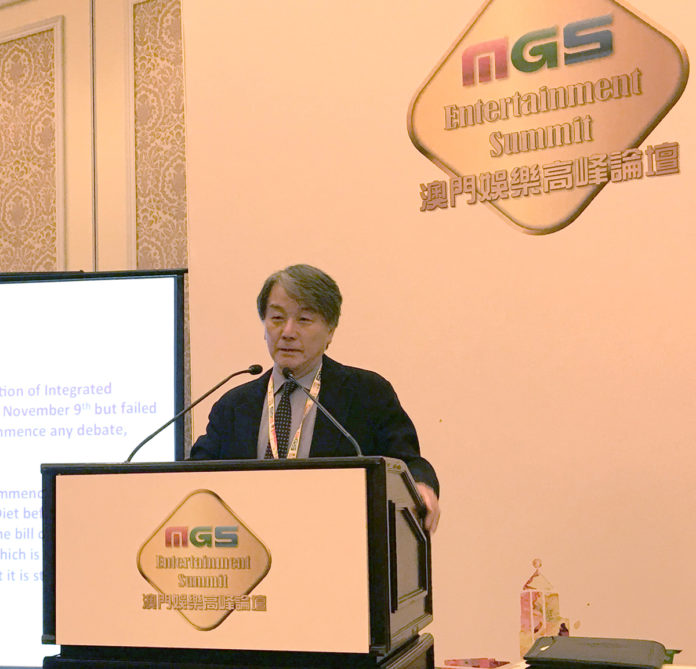The current bill aimed at introducing integrated resorts (IRs) to Japan and set to be debated before the end of the present term, if not passed in generality will be at some point – “it’s just a question of time” before eventually passing, notes Professor Toru Mihara (pictured) from Osaka University of Commerce. The Professor’s comments came on the sidelines of the MGS Entertainment Show, held at The Venetian.
“If the discussion can be commenced on Friday this week, the odds can be 50/50”, said the professor.
The timeline arising from an eventual positive outcome from the current session would mean that the first casinos could start to appear in Japan in 2021 to 2023, he believes. This conforms to a timeline following a government-constructed organisation to draft the law, its presentation to the Diet in its 2018 ordinary session, and the time necessary for choosing the zones, among other procedures, all of which will depend on public opinion.
“The real problem we have is even if the policy is fine, if we don’t have the effective tools to explain the position to the people in general it’ll be quite difficult to get a consensus”, explains Professor Mihara, pointing out that in more rural zones this can be more challenging.
“In the big cities, when the mayor says ‘we want IR’ then that’s accepted as fact, but when you go to the small cities, it’s a different story”, states the professor.
He is confident, however, that the debate will bear fruit.
“In the year 2022/2023, I’m definitely sure that the integrated resort that is seen in Macau can be seen in Japan, too,” he says, noting that “I understand Japan is the only untapped (casino) market in the world”.
“It took 10 years for the concept to be materialised and put on the Prime Minister’s desk”, states the professor regarding the bill. Since then, three years have passed, with the bill going through five ordinary sessions of the Diet. Now however, it has the highest ever chance of being voted on, with the professor declaring: “I haven’t seen this kind of situation in the past 20 years.”
























